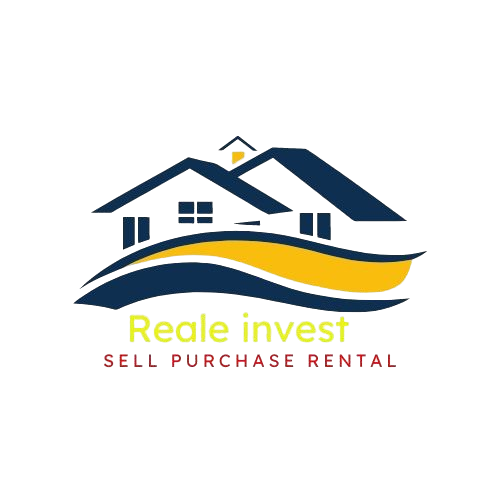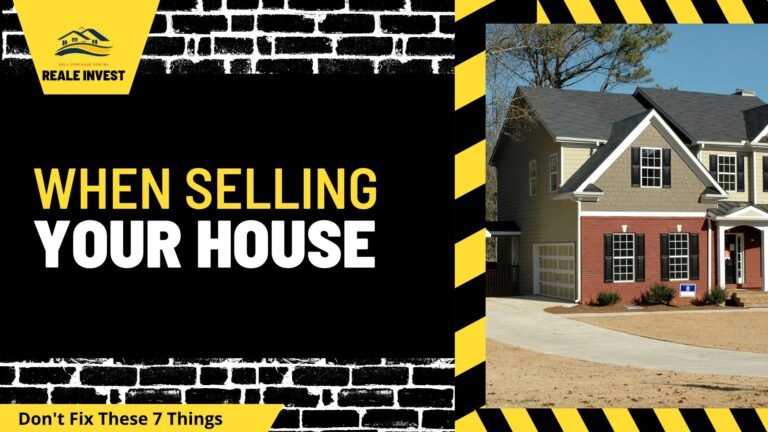RealeInvest is a comprehensive website providing accurate information on real estate and tourist bookings, from buying and investment tips to real estate financing

You’re Not Alone—Selling a Mortgaged Home is More Common Than You Think

You’ve spent years making memories in your home. Maybe it’s where you raised your kids, started a business, or weathered tough times. But life moves fast. And whether you’re relocating, downsizing, or just ready for a change—you’re probably wondering: “Can I even sell my house if I still owe on the mortgage?”
The answer? Yes. And it happens all the time.
But here’s the thing: selling a house with a mortgage isn’t like a regular sale. It has extra steps, legal considerations, and financial details that, if overlooked, could cost you thousands. You’re smart to do your homework. Let’s break it all down—step by step.
- You’re Not Alone—Selling a Mortgaged Home is More Common Than You Think
- Understanding What It Means to Sell a House with a Mortgage
- Step-by-Step: How to Sell a House with an Active Mortgage
- Let’s Talk About Your Mortgage at Closing
- Boosting Profit While You Still Owe on the House
- Avoid These Risky Mistakes
- When Is the Best Time to Sell a Mortgaged Home?
- Special Situations to Be Aware Of
- Need to Sell Fast? Consider These Options
- Example Mortgage Payoff Breakdown
- Tax Considerations When Selling
- Your Final Checklist Before You List
- Conclusion: You’re in Control of the Sale
- FAQs: Selling a House with a Mortgage
Understanding What It Means to Sell a House with a Mortgage
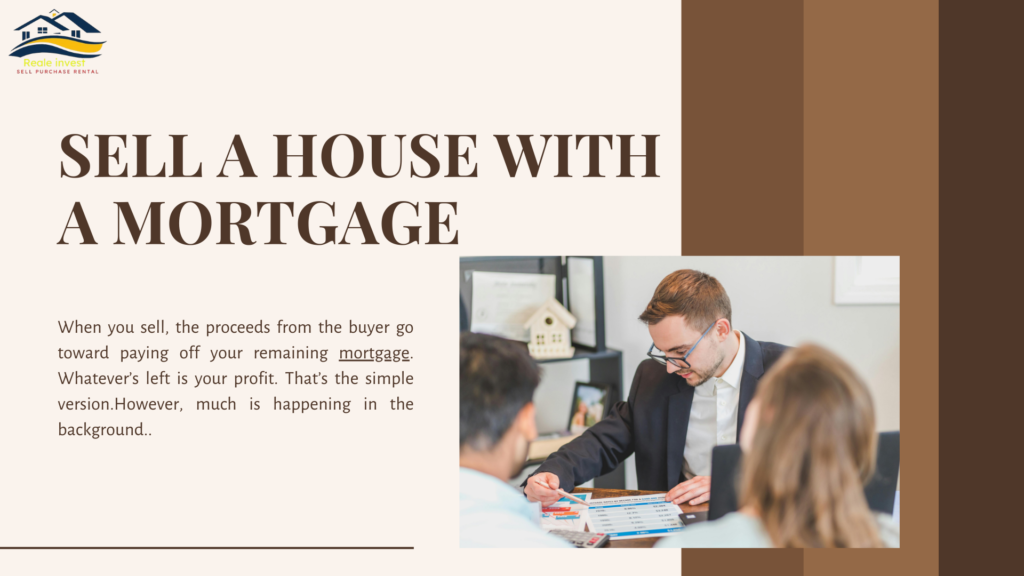
What Exactly Happens to Your Mortgage When You Sell?
When you sell, the proceeds from the buyer go toward paying off your remaining mortgage. Whatever’s left is your profit. That’s the simple version.However, much is happening in the background..
The mortgage doesn’t disappear.
Your lender still needs their money.
The payoff must happen before the new owner gets the keys.
Why Do People Sell Before Paying Off Their Loan?
You might be:
Moving for work
Needing more space for a growing family
Scaling down to cut costs
Profiting from a thriving real estate market
Bottom line? You don’t have to wait until your mortgage hits zero.
Step-by-Step: How to Sell a House with an Active Mortgage
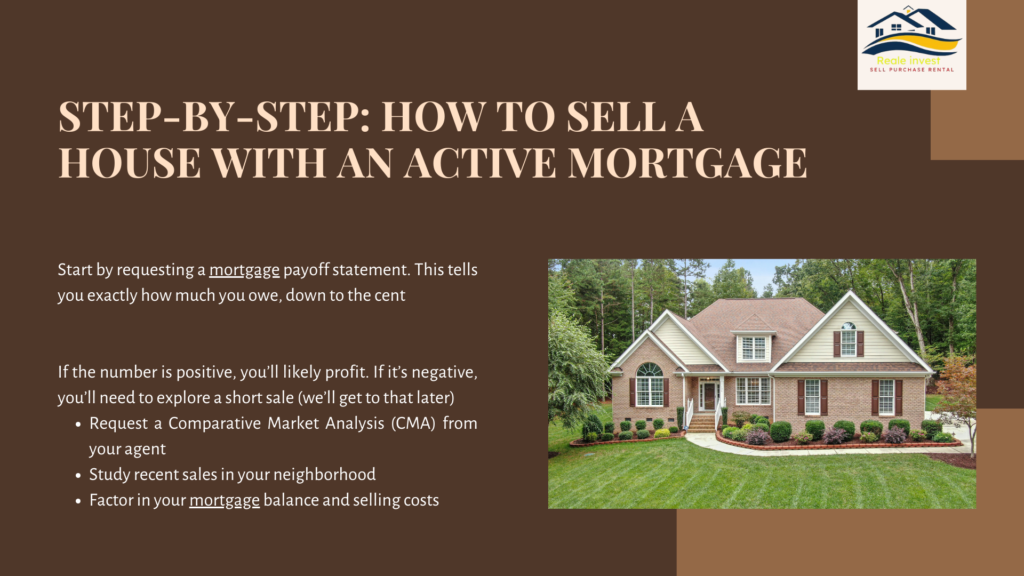
1. Contact Your Lender First
Start by requesting a mortgage payoff statement. This tells you exactly how much you owe, down to the cent. This figure may include:
- Remaining loan balance
- Accrued interest
- Potential early payoff fees
Knowing this upfront helps you avoid surprises later.
2. Find Out How Much Equity You Have
Use this simple formula:
Estimated Market Value – Remaining Mortgage = Equity
If the number is positive, you’ll likely profit. If it’s negative, you’ll need to explore a short sale (we’ll get to that later).
3. Hire a Real Estate Agent Who’s Done This Before
Not all agents are created equal. Look for someone who:
- Has experience with mortgaged properties
- Understands how to navigate bank requirements
- Can market your home aggressively for top dollar
A good agent becomes your strategist, negotiator, and guide.
4. Set a Smart Price That Covers Your Loan
Overpricing your home can backfire. You’ll scare off buyers, waste time, and risk selling for less later.
Instead:
- Request a Comparative Market Analysis (CMA) from your agent
- Study recent sales in your neighborhood
- Factor in your mortgage balance and selling costs
Be strategic. Not sentimental.
Let’s Talk About Your Mortgage at Closing
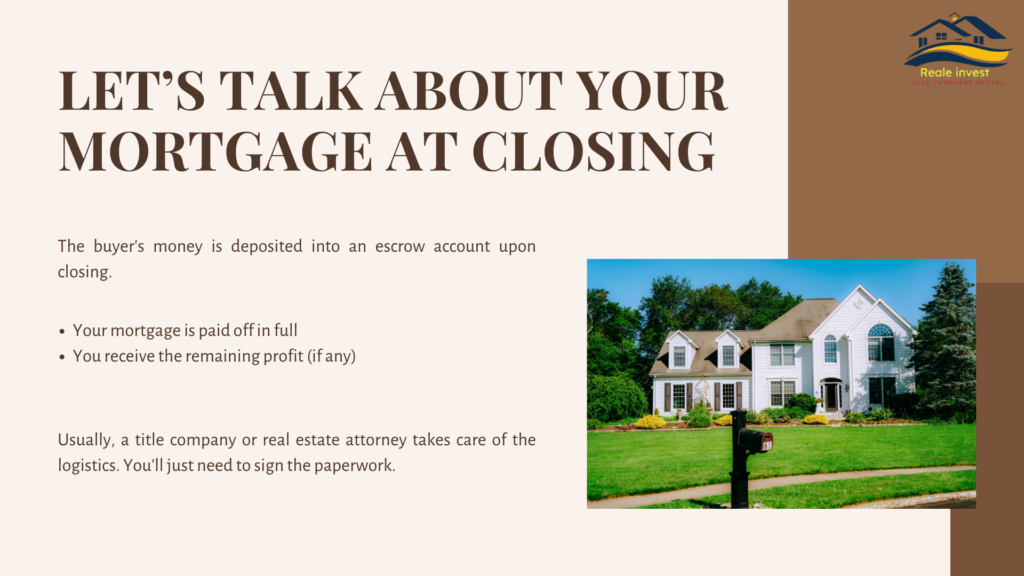
How Your Loan is Paid Off
The buyer’s money is deposited into an escrow account upon closing.
- Your mortgage is paid off in full
- You receive the remaining profit (if any)
Who Handles the Payoff?
Usually, a title company or real estate attorney takes care of the logistics. You’ll just need to sign the paperwork.
Boosting Profit While You Still Owe on the House
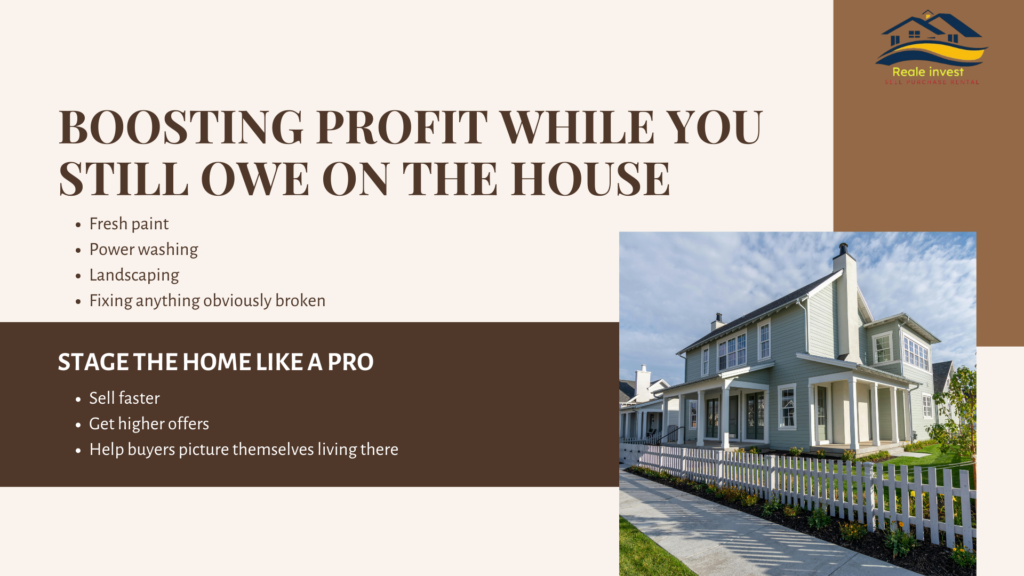
Make Smart, Affordable Fixes
You don’t need a full renovation. But quick improvements can seriously boost value:
- Fresh paint
- Power washing
- Landscaping
- Fixing anything obviously broken
Stage the Home Like a Pro
Staged homes:
- Sell faster
- Get higher offers
- Help buyers picture themselves living there
Use neutral colors, good lighting, and minimal clutter.
Avoid These Risky Mistakes

1. Not Budgeting for Closing Costs
You’ll likely pay:
- Real estate commission (5–6%)
- Title fees
- Taxes
- Recording and escrow charges
Typical closing costs run about 6–10% of your home’s price.
2. Forgetting About Moving Costs
Are you moving across town or across the country? Either way, moving is expensive. Don’t let this catch you off guard.
3. Selling While “Underwater”
If your mortgage is more than your home’s value, you’re “underwater.” In this case, you may need to:
- Get their approval before listing
- Understand the potential credit consequences
When Is the Best Time to Sell a Mortgaged Home?
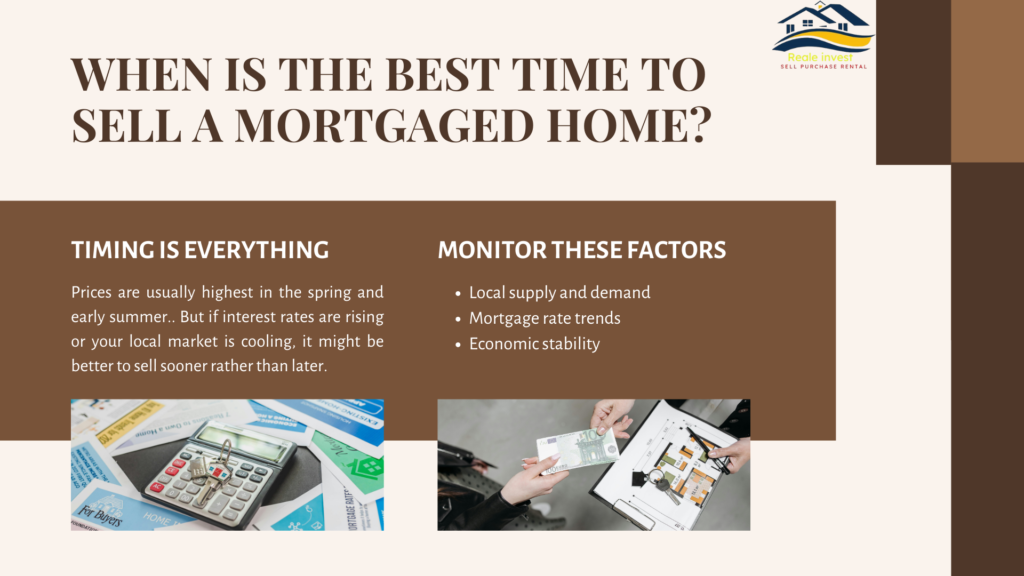
Timing Is Everything
Prices are usually highest in the spring and early summer.. But if interest rates are rising or your local market is cooling, it might be better to sell sooner rather than later.
Monitor These Factors:
- Local supply and demand
- Mortgage rate trends
- Economic stability
Special Situations to Be Aware Of
Facing Foreclosure? It is Possible That You Can Still Sell
If you’re behind on payments:
- Contact your lender immediately
- Ask about a “pre-foreclosure sale” option
- A sale can save your credit and prevent foreclosure.
Selling During a Divorce or Inheritance Dispute
This gets tricky. Make sure:
- All parties are on the same page
- Legal paperwork is clear
- You have the proper authority to sell
Need to Sell Fast? Consider These Options
Cash Buyers
Pros:
- Fast closings (7–10 days)
- No repairs needed
- No commissions
Cons:
- Lower offers (typically 70–80% of market value)
iBuyers (Online Homebuyers)
These platforms make instant offers. But be cautious—they often charge high service fees (up to 13%) and offer below market value
Example Mortgage Payoff Breakdown
| Item | Amount ($) |
|---|---|
| Home Sale Price | $400,000 |
| Remaining Mortgage | $250,000 |
| Real Estate Commissions | $24,000 (6%) |
| Closing Costs | $12,000 (3%) |
| Your Net Profit | $114,000 |
This table illustrates how your equity and costs affect your final payout.
Tax Considerations When Selling

A capital gains tax exemption might be available to you if:
. For two of the previous five years, you resided at the house.
. Your gain is less than $500,000 if you are married, or $250,000 if you are single.
To be safe, consult a tax advisor.
Your Final Checklist Before You List
Here’s your must-do list:
- ✅ Get a mortgage payoff quote
- ✅ Estimate your equity
- ✅ Hire an experienced real estate agent
- ✅ Make value-adding repairs
- ✅ Stage and clean the home
- ✅ Price it to sell—without leaving money on the table
Conclusion: You’re in Control of the Sale
Selling a house with a mortgage doesn’t have to be scary. With the right knowledge, preparation, and guidance, you can walk away with cash in hand and peace of mind.
You’re not just offloading a property—you’re opening a new chapter in your life.
Take the steps, ask the questions, and lean on the professionals who can guide you through it.
FAQs: Selling a House with a Mortgage
Can I sell my house if I still owe money on the mortgage?
Yes, absolutely. At closing, the proceeds are used to pay down the outstanding debt on your loan..
What happens if my home is worth less than my mortgage?
You may need to pursue a short sale with your lender’s approval or bring money to the closing table.
Do I need to tell buyers about my mortgage?
Not directly. Your agent and closing team handle the mortgage payoff during the process.
Should I pay off my mortgage before selling?
Not necessarily. Most homeowners sell while still owing money—it’s normal and manageable.
Can I still sell if I’m behind on mortgage payments?
Yes, but act fast. Talk to your lender about your options and consider a pre-foreclosure sale.
